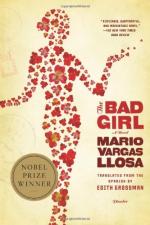|
This section contains 434 words (approx. 2 pages at 300 words per page) |

|
From the beginning Vargas Llosa was accused by the friendliest of his critics of "the bad habit of withholding vital information." In his impressive first novel, La Ciudad y los Perros, what the dog-eat-dog violence of a military school is intended to symbolize depends on a series of interior monologues in the mind of a character whose identity is not revealed until the end of the book. The young novelist idolized Faulkner and may have copied from him this lack of respect for the reader, but he had rejected Faulkner's subjectivity from the outset. In his next novel, La Casa Verde, Vargas Llosa commits even graver sins of obfuscation, telling simultaneously five stories about essentially anonymous characters and providing no clues to place or time.
In comparison with those predecessors, Aunt Julia and the Scriptwriter is a model of straightforwardness. The plots of Pedro Camacho's radio soap operas...
|
This section contains 434 words (approx. 2 pages at 300 words per page) |

|


